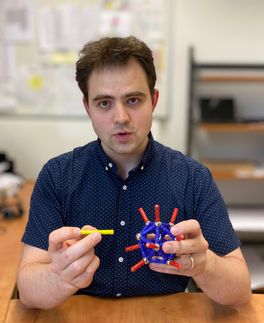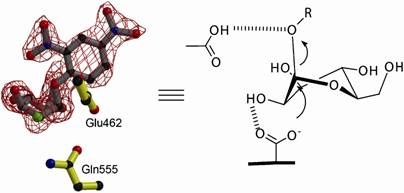3rd International BASF Boron Conference in Heidelberg
Successful exchange between industry and science
Advertisement
Where does boron chemistry stand at present? Which way are developments headed? These were the questions addressed by more than 100 visitors from the worlds of science and industry at the 3rd International Boron Conference, who again drew attention to the importance of boron compounds for pharmaceutical synthesis. At the two-day meeting in Heidelberg on November 13 and 14, experts from around the world discussed current trends and new applications of boron compounds in fine chemistry.
"From Lab to Launch - Discover New Horizons", true to the spirit of this slogan, the conference aimed to strengthen the dialogue between science and users from industry with a view to identifying new solutions. The conference focused on the presentation of numerous technical papers by internationally leading scientists and researchers. "With this international conference we have created a platform for scientific exchange in applied boron chemistry," emphasized Dr. Ulrich Büschges, Group Vice President of the Global Business Unit Inorganic Specialties. "This meeting gives us the opportunity to discuss questions of topical interest relating to the development of active ingredients for the pharmaceutical industry," continued Büschges. "The increasing number of participants impressively reflects the growing importance of these reagents for the synthesis of active agents."
Boron chemistry has long been a fully-fledged discipline and now has its place in the industrial scale manufacture of numerous pharmaceutical products. And - on this point the experts are unanimous - the importance of boron compounds in this field of activity will continue to grow in the years ahead.
Prof. Akira Suzuki (Hokkaido University, Japan) and Prof. John A. Soderquist (University of Puerto Rico), two of the pioneers of applied boron chemistry, were among the main speakers at the conference. Prof. Suzuki impressively demonstrated in his presentation the many possibilities offered by the coupling reaction that bears his name.
Prof. Soderquist emphasized how important it is to maintain a permanent dialogue between science and industry: "The representatives of industry have clearly stated what is most important for them: stable, simple and efficient reactions." This feedback, he confirmed, is particularly interesting for him as a university teacher.
The use of boranes offers numerous advantageous for fine chemical syntheses and, Soderquist is convinced, will continue to gain significantly in importance. "There is now a rising new generation of researchers in this branch of science who are developing completely new approaches that will further diversify the possibilities offered by boron chemistry," he said.
The enormously wide range of potential applications was also illustrated by a large number of specialist papers presented by leading scientists from industry and academia. The mix of topics ranged from multistage natural substance syntheses to the bulk production of agricultural products.
Dr. Fred Baumgartner, President of BASF's Inorganics division, is highly enthusiastic about the outstanding acceptance enjoyed by this event as a regular discussion platform for representatives of industry and the academic community. "New solutions can only be generated through such exchange," he concluded.
Other news from the department business & finance
These products might interest you
Most read news
More news from our other portals
See the theme worlds for related content
Topic world Synthesis
Chemical synthesis is at the heart of modern chemistry and enables the targeted production of molecules with specific properties. By combining starting materials in defined reaction conditions, chemists can create a wide range of compounds, from simple molecules to complex active ingredients.

Topic world Synthesis
Chemical synthesis is at the heart of modern chemistry and enables the targeted production of molecules with specific properties. By combining starting materials in defined reaction conditions, chemists can create a wide range of compounds, from simple molecules to complex active ingredients.


































































